#langblur
Photo

#language#languages#language learning#learning languages#language lovers#language meme#language lover#language memes#languge learning#languageblr#language immersion#langauge learning#language exchange#langblur#linguistics#linguist#linguistics memes#linguists#linguistics meme#polyglots#polyglot struggles#polyglot meme#polyglot memes#polyglot#polyglot life
104 notes
·
View notes
Text
Hi, my younger sibling and I are learning modern Greek together.
I was hoping to find some physical text/workbooks I could order, or perhaps a PDF I could print off.
Thanks <3
My ask box and dms are open. Comments are also enabled, however I won't be able to respond since this is a sideblog
6 notes
·
View notes
Text
wahh it sucks how big kanji is in regular Japanese
。:゚( ;´ _ `; )゚:。
I think I am getting so much better, then boom! kanji!
I know I will get better and eventually memorise them, but they still make me so sad!


#japan#learning Japanese#Japanese#japanese language#langblur#japanese langblr#i made the little ''i am learning" banner myself#it says#please be kind to me. i am a beginner who is studying Japanese.#you can use it on your posts too if you would like!
12 notes
·
View notes
Text

langblur introduction!!
hii i’m mona and am teaching myself korean!! i’m also interested in learning german as well as other languages later down the road :3
info about me
- my name is mona or 모나
- i go by they/she pronouns
- i’m 20, pagan sapphic
- english is my native language

1 note
·
View note
Text
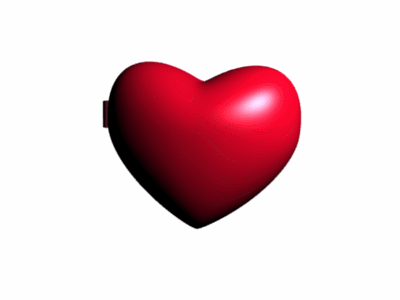

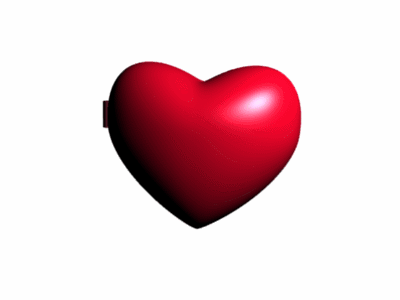
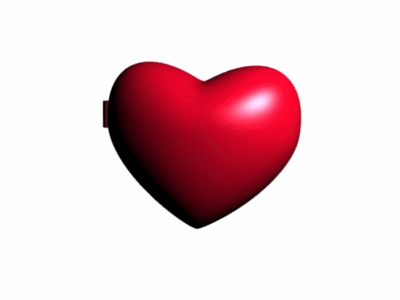

Just turned in my capstone paper! How we doing this fine, stressful friday?
#linguistics#lingblr#kiowa language#endangered languages#language#langbr#langblur#capstone#final project#final paper#chaotic academia#ipa type it my beloved#IPA#international phonetic alphabet
293 notes
·
View notes
Text
The Welsh Alphabet
I’ve often heard people say “how can you read Welsh? There’s no vowels” or “Welsh looks like a keyboard smash”. Well, like many other European languages, Welsh uses it’s own alphabet that is seperate from the English alphabet (though don’t be mistaken, it still uses the latin script). The Welsh alphabet is as follows:
a, b, c, ch, d, dd, e, f, ff, g, ng, h, i, j, l, ll, m, n, o, p, ph, r, rh, s, t, th, u, w, y
You may have noticed that there are some combinations of what would be “multiple letters” in English. In Welsh, these are considered single letters.
Now we know what letters we’re working with, let’s break the list down into consonants and vowels.
Consonants
The consonants in Welsh are the following:
b, c, ch, d, dd, f, ff, g, ng, h, j, l, ll, m, n, p, ph, r, rh, s, t, th
Since a lot of the consonants are said the same way they are in English, I’ll explain only how to pronounce the ones you may be unfamiliar with
ch - like the ch in the Scottish word “loch” or in the name “Bach” (like the composer)
dd - like the th sound in “this” or “that”
f - like the English v sound (or like the f in “of”)
ff - like the english f sound (e.g. the f in “flower” or “farm”)
ng - like the ng sound at the end of “sing” or “ring”
ll - this one will take some practice. Place your the tip of your tongue against the ridge of your gums behind your top teeth, open your mouth and blow out air quickly
ph - like the ph in “photo”
rh - said like a much breathier r sound
th - said like the th sound in “think” or “thanks”
Vowels
The vowels in Welsh are the following:
a, e, i, o, u, w, y
u - said like the ee in “street” or “fleet”
w - said like the oo in “mood” or “food”
y - can be said like the u in “hut” or “nut” (the schwa sound, if you’re a linguist) or like the i in “tin” or “bin”
Diacritics
The Welsh language has a few diacritics that can be added to the vowels.
The most common diacritic you’ll see is the to bach (the circumflex), which looks like this:
â, ê, î, ô, û, ŵ, ŷ
This diacritic extends the vowel sound and is used a fair amount
Another diacritic you may come across is the diaeresis, which looks like this:
ï
This diacritic is used on the vowel i, and ϊ is followed by another vowel (typically o) to create a seperation between the two vowels and prevent them from creating a diphthong (where the two vowels blend together to a sound between them)
For example, ϊ is used in the word “sgϊo” to make it be pronounced as “sgee-oh” rather than “sgyo” (how it would sound when written as “sgio”)
In order to help explain how to say some of the letters in the Welsh alphabet, I used this site from the open university.
For an audio guide on how to pronounce these letters, this youtube video is great for the sounds (although the examples of words they chose aren’t necessarily the best choices, just so you’re aware).
I hope this post has helped people to understand the Welsh alphabet and it’s potential diacritics a little better. If anyone has any improvements or suggestions, please feel free to let me know and I’ll be happy to edit/include these :)
#welsh#welsh language#welsh langblr#wales#cymraeg#dysgu cymraeg#cymru#alphabet#langblr#language learning#langblur#langblog
294 notes
·
View notes
Text
Learning english is learning how you can fucking use "fuck" in any fucking place in the fucking sentence
#my post#language study#language learning#langblr#non native english speaker#studyblr#langblur#language things
108 notes
·
View notes
Text
2+ Months of Language Learning Prompts!
Sometimes it can be tricky to know what to learn if you are teaching yourself a language. Here are some ideas for what you can focus on learning each day for the first two months of learning a new language! I formatted it so there is the general topic for the day and then in parentheses are some ideas to get you started but you can definitely learn a lot more than what I’ve written down! These are just to help generate some ideas!
This definitely would move pretty quickly if you covered all this material in 2 months so you could definitely spend more time on each topic if you need! This would require quite a bit of time each day in order to learn it all. This could totally work for a 4 or 6-month challenge where you spend 2 or 3 days on each of the topics I listed if you don’t have enough time to cover each topic in just one day!
Polite phrases (thank you, please, yes/no, you’re welcome, I’m sorry)
Introductory phrases (hi, my name is, I’m from, I speak, how are you?)
Pronouns (I, you, he, she, they, we)
Basic people vocab (girl, boy, man, woman, person, child)
Basic verbs in present tense (to eat, to drink, to walk, to read, to write, to say)
Sentence structure (how to form some basic sentences)
Negative sentences (I do not __)
Question words (who, what, where, when, why, how, how to form questions)
Numbers (0-20, 30, 40, 50, 100, 1,000, 1,000,000)
Time (hour, minute, half hour, reading the time)
Meals (breakfast, lunch, dinner, snack, dessert, appetizer)
Basic foods (apple, banana, rice, bread, pasta, carrot, soup, water)
More foods (beef, pork, fruit, vegetable, juice, coffee, tea, chocolate, cake)
Kitchen (stove, oven, kitchen, fridge, table, chair, bake, boil)
Eating supplies (knife, spoon, fork, plate, bowl, cup, glass)
More verbs (to make, to have, to see, to like, to go, to be able to, to want, to need)
Family (father, mother, son, daughter, aunt, uncle, cousin, grandmother, grandfather, parents, grandparents)
Transportation (car, train, plane, bus, bicycle, airport, train station)
City locations (apartment, building, restaurant, movie theater, market, hotel, bank)
Directions (north, south, east, west, right, left)
Adjectives (good, bad, smart, delicious, nice, fun)
More verbs (to give, to send, to wake up, to cry, to love, to hate, to laugh)
Colors (red, yellow, blue, green, purple, black, white, brown)
Emotions (happy, sad, calm, angry)
Physical descriptions (tall, short, blonde, brunette, redhead, eye color)
Body parts (arm, leg, hand, finger, foot, toe, face, eye, mouth, nose, ears)
Descriptors (rich, poor, beautiful, ugly, expensive, inexpensive)
Basic clothing (shirt, pants, dress, skirt, jacket, sweater, skirt, shorts)
Accessories (belt, hat, wallet, gloves, sunglasses, purse, watch)
More verbs (to keep, to smile, to run, to drive, to wear, to remember)
Animals (cat, dog, horse, cow, bear, pig, chicken, duck, fish)
More animals (turtle, sheep, fox, mouse, lion, deer)
Months (January, February, March, April, May, June, July, August, September, October, November, December)
Seasons (fall, winter, spring, summer)
Weather (sunny, cloudy, hot, cold, snowing, raining)
States of being (I’m hungry, I’m tired, I’m thirsty)
House (bedroom, living room, bathroom, stairs)
Furniture (bed, lamp, couch, door, window)
Electronics (phone, TV, computer, camera, radio, headphones)
Nature (tree, flower, plant, animal, grass, animal, outside, sky, sun, moon, clouds)
More verbs (to teach, to learn, to understand, to know, to listen, to hear)
School (classroom, elementary school, high school, college, student, class, grade, homework, test)
School subjects (math, science, English, art, music, chemistry, biology, physics)
School supplies (book, pencil, pen, paper, notebook, folder, backpack, calculator)
Classroom features (student desk, teacher desk, whiteboard, chalk, clock, bell)
Jobs (teacher, scientist, doctor, artist, dancer, musician)
More jobs (surgeon, manager, engineer, architect, lawyer, dentist, writer)
More verbs (to buy, to sell, to work, to ask, to answer, to dance, to leave, to come)
Comparisons (less than, more than, same, __er than)
Languages (French, German, Chinese, Russian, Spanish, English, Japanese)
Countries (France, Germany, China, Russia, Spain, Mexico, United States, Japan)
Religion (church, temple, mosque, to pray, Judaism, Christianity, Islam)
Past tense (I was, he ran, she wrote)
Hobbies (shopping, sports, soccer, chess, fishing, gardening, photography)
More verbs (to describe, to sleep, to find, to wish, to enter, to feel, to think)
Art (paint, draw, painting, gallery, frame, brush)
Morning routine (to wake up, to brush teeth, toothbrush, toothpaste, comb, soap)
Future tense (I will run, he will write)
TV + internet (online, internet, to watch TV, TV show, movie, documentary, cartoon)
More verbs (to look for, to stay, to touch, to meet, to show, to rent, to wash, to play)
#langblr#langblog#langblur#studyblr#studyspo#studyinspo#studyspiration#language#languages#learning#polyglot#bilingual#foreign#goals#habits#2020#resolution#ideas#list#prompts#amillionlanguages#1yearoflangs#challenge#self study#self taught#student#school
7K notes
·
View notes
Text
MUSICAL MONDAYS WEEK 2!

Happy Monday everyone! I hope you all had a beautiful weekend and are all well rested.
It's that time of the week where I'm back with another study post! Whoop whoop.
The song this week absolutely slaps! I can't stop singing it. @tell-tale-taeil Thank you so much for recommending this for my Musical Monday's. Your taste in music is 10/10!
Song: Boat 보트
Artist: George 죠지
My thoughts on the song: If you're looking for a fun and light hearted little number I strongly recommend this. I can't stop singing the lyrics. The other day I was making a cup of tea, and out of nowhere I scream sung 'I'M ON A BOAT' much to the surprise of my mum, who rightly looked at me with concern. Sorry mum. The lyrics are stuck in my head and need an outlet. Great song. Go give it a listen when you have a few moments to spare. I warn you though, you will end up shouting "I'm on a boat" at random and sporadic moments throughout the day after hearing this! 😄
Notes: As I am still not 100% fluent in Korean, my study sentences are for me to practise writing in Korean. So there might be a few mistakes. If you spot any or a better way to translate a sentence, please let me know so I can correct it!
Translation Notes: I have included a mixture of my own sample sentences, Papago translation and Naver Dictionary. Where sentences are not my own I have labelled them.
Let's get this study show on the road!
VOCABULARY:
사방에 on every side/ on all sides/ all around/ everywhere
산지사방 all directions (Naver) Can also mean ‘Mountainous area’
사방에서 from every direction
사방에 벌들이 날고 있었어요! Bees were flying everywhere! (Nuance: Surrounded by bees on all sides)
사방을 살펴보다 look all around (Naver)
새 카페들이 사방에 생겨나고 있죠? New cafes are popping up everywhere, right?
사방을 살피다 Keep a sharp lookout (Naver)
산지사방으로 흩어지다 scatter/ be dispersed in all directions (Naver) (Scatter all over the country)
사방으로 싸다니다 bustle in and out/ hang about (Naver)
사방으로 비산하다 fly in all directions (Naver)
벌들은 사방으로 비산해고 있어요! Bees are flying everywhere!
새들은 사방으로 비산했어요. The birds scattered in all directions.
올리다 raise/ lift up/ achieve/ gain
Present Tense: 올려요
Past Tense: 올렸어요
Future Tense: 올릴 거예요
Nominal: 올림
Contrast: 올리지만
이자율을 올리다 raise/ drive up the interest rates (Naver)
기름 값을 올리다 raise the gas rates
이번년에서 가스회사는 기름값을 30%로 올렸어요. This year, the gas company raised the price of oil by 30%. (Mine + Papago)
저는 연간 3천만 원의 소득을 올리고 싶어요. I want to make a yearly profit of 30 million won a year. (Roughly £18,738.69) I want to earn 30 million won a year.
오른팔을 올릴 때 아픈가요? Does it hurt when you raise your right arm?
쏘아 올리다 launch/ shoot up/ send off (Naver)
로켓을 쏘아 올리다 Launch a rocket (Naver)
선취 득점을 올리다 score the first point on a game/ get on the score board first (Naver)
블로그에 글을 올리다 write on a blog (Naver) Post something on a blog.
오늘은 뮤지컬 월요에 대한 글을 블로그에 올리려고 해요. Today, I am going to blog about musical Mondays.//Today, I'm going to post a blog about musical Mondays.
페널티킥으로 득점을 올리다 score on a penalty kick (Naver)
머리를 올리다 put one’s hair up (Naver)
멀어지다 recede/ die away/ drift apart/ grow apart
Present Tense: 멀어져요
Past Tense: 멀어졌어요
Future Tense: 멀어질 거예요
Contrast: 멀어지지만
사이가 서로 멀어지다 Become estranged from each other
윤아 씨는 친구들과 사이가 멀어졌어요. Yoona has become estranged from her friends.
원하다 want/ wish/ hope/ desire
Present Tense: 원해요
Past Tense: 원했어요
Future Tense: 원할 거예요
Contrast: 원하지만
미나는 미래에 파리 미대에서 공부하기를 원해요. Mina wants to study at the Paris Academy of Fine Arts in the future. Mina hopes to study at the Paris Academy of Fine arts in the future.
다 사람들은 많이 돈을 원해요. Everyone wants a lot of money.
저는 천체물리학자가 되기를 원했어요. I wanted to be an astrophysicist.
탐욕스럽게 명예를 원하다 to be greedy/ hungry for fame/ honour. (Naver)
한심하다 pathetic/ pitiful
Present Tense: 한심해요
Past Tense: 한심했어요
Future Tense: 한심할 거예요 // 한심할 것이에요
Nominal: 한심함
한심하기 짝이 없다 To be extremely deplorable (Naver)
넌 한심하지 마! Don’t be pathetic!
다르다 different from/ different to
Present Tense: 달라요
Past Tense: 달랐어요
Future Tense: 다를 거예요
Contrast: 다르지만
질적으로 다르다 to differ in quality (Naver)
거리에 따라 다르다 vary with distance (Naver)
차원이 다르다 be entirely different/ belong to a different level (Naver)
생각이 다르다 have a different way of thinking (Naver)
취미가 서로 다르다 have quite different tastes (Naver)
내 친구와 나는 취미가 서로 달라요. My friend and I have different hobbies.
하루가 다르다 change from one day to the next/ rapidly change (Naver)
그는 기분이 하루가 달라요. His mood changes from one day to the next.
Another way to say this is: 그의 기분은 하루하루 변한다.
날씨는 하루가 다르다. The weather is different from day to day.
앞뒤가 다르다 to be inconstant/ to not add up. (Lit: One’s front and back are different)
그들의 이야기는 앞뒤가 달라요. 거짓말인 것 같아요. Their stories are different. I think it’s a lie.
정돈하다 tidy up/ straighten up/ arrange/ clear/ put sth in order
Present Tense: 정돈해요
Past Tense: 정돈했어요
Future Tense: 정돈할 거예요
오늘은 저의 집을 정돈했어요. I cleaned my house today. Lit: I put my house in order today. E.g I tidied my house today.
저의 주위를 정돈할 필요가 있어요. I need to organize my surroundings.
창고에 장비들이 잘 못 정돈되어 있었어요. The equipment was not well organized in the warehouse. (Modified Naver)
뜻밖의 unexpected/ unanticipated
저는 뜻밖의 희소식을 듣고 싶어요! I want to hear some unexpected good news!
어제밤에 우리는 뜻밖의 희소식을 들었어요! Last night we heard some unexpected good news! Last night we got some unexpected good news!
뜻밖의 손님이 들어왔는 것 같아요. I think we have an unexpected guest.
It seems that an unexpected guest has arrived.
뜻밖 unexpectedness/ a surprise
향하다 look/ face/ head towards
Present Tense: 향해요
Past Tense: 향했어요
Future Tense: 향할 거예요
Contrast: 향하지만
창문은 남쪽을 향해 나 있다 The window faces/ looks south. (Naver Example)
배는 바다를 향해 나아갔다 The boat headed out to sea. (Naver Example)
어선는 대서양를 향해 나아갔어요. The fishing boat headed for the Atlantic Ocean.
미나와 그녀의 가족은 도쿄을 향해 출발했어요. Mina and her family set off for Tokyo. Mina and her family departed for Tokyo.
내의 침실 창문은 숲을 향해 있어요. My bedroom window faces the forest.
마음이 고향을 향하다 To yearn for home. (Naver) Literally: My heart is heading towards my hometown.
우려하다 concern/ worry/ fear/ worry about/ fear that
Present Tense: 우려해요
Past Tense: 우려했어요
Future Tense: 우려할 거예요
많이 사람들은 경제 위기를 우려해요. Many people are concerned about the economic crisis.
우려 Concern
우려를 표명하다 Express concern over (Naver)
우려할 만한 worrying/ alarming/ serious (Naver)
Miscellaneous things I found interesting in this song!
회치다 slice raw fish/ prepared slice raw fish
회(를) 치다 prepare a raw fish dish
회 Sashimi
참치회 slices of raw tuna
모듬회 a plate of assorted raw fish
이 맥주는 회에 잘 어울리다. This beer goes well with sashimi.
GRAMMAR:
The grammar point that I have chosen from this song is an interesting one because it combines 2 grammar points into one.
ㄹ 수도 있지만: ...may happen, but....
The first grammar point in this is:
(을) ㄹ 수도 있다 – Talking about possibilities. May/ Might
It is a mixture of 을/ㄹ 수 있다 = Can/ expressing ability to do something and 도 meaning 'also'. When combined it means ‘Can also…’ = May or might.
The second grammar point is:
지만 – Even though/ but/ however
Shows a contrast between the two clauses.
Can also be used to connect two clauses together.
I will be creating separate grammar posts for each of these points listed above, otherwise this post will get real long!
When (을) ㄹ 수도 있다 and 지만 are combined it gives the impression of '....may happen but…'
Examples from the song:
큰 파도가 날 덮칠 수도 있지만A big wave might hit me,
뜻밖의 사과가 날 수도 있지만 There may be an unexpected apology/ accident.
There we go everyone! Study list complete! I hope you enjoyed studying with Musical Mondays, and that you liked listening to this amazing song too!
As always everyone,
Stay safe, have a beautiful day, and happy studying! x
Sources: Naver dictionary, Papago translation, Verbix.com, Unsplash.com.
#korean grammar#korean vocabulary#korean vocab list#studyblr#study notes#langblur#musical monday#musical mondays#Boat by George
25 notes
·
View notes
Text
You have been visited by the polyglot fairy 🧚🏼♂️✨
reblog to become fluent in all your target languages ☺️💐
#study motivation#studyblr#language#education#polyglot#motivation#language learning#learn languages#learngerman#learn korean#learnfrench#learnenglish#langblog#langblr#langbr#langblur
799 notes
·
View notes
Photo

#language#languages#language learning#learning languages#language lovers#language meme#language lover#language memes#languge learning#languageblr#language immersion#langauge learning#language exchange#langblur#linguistics#linguist#linguistics memes#linguists#linguistics meme#polyglots#polyglot struggles#polyglot meme#polyglot memes#polyglot#polyglot life
1K notes
·
View notes
Photo

feb 3 2021 // day 28 of 100 days of productivity
today:
watch “fundi: the story of ella baker”
reading notes
work on translation
code some study responses
I’m still wiped out from all my meetings yesterday, and not looking forward to deciphering my notes on interface theory. the lecture would’ve been hard to follow if I hadn’t already been so sleepy, in which case it was almost incomprehensible. but hey, I’m not taking that class for credit, so I’m proud of myself for surviving two hours in the first place!
#smileystudies#studyblr#studying#langblur#lingblr#100dop#100 days of productivity#bulletnotestudies#gahh still love your backgrounds <3#myhoneststudyblr#philology-studies#look-rivkah#look-rylie#lattesforlaura#nadjastudies#gammastudies#mine#desk#my desk#studyspo
65 notes
·
View notes
Text

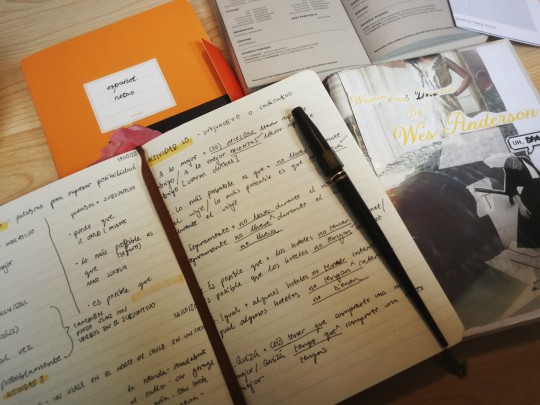

You can tell I really don't understand what I'm studying when I need all my notebooks and my dictionary
#this cup of coffee turned out to be really weak and it wasn't what I needed to writing exercises#studyblur#langblur#studyblr#langblr
125 notes
·
View notes
Photo

March Goals 2021
New cooking/baking recipes
reorginize and clean my room
new plants+extra care for mine
Continue french
Keep track of healthy habits
Journaling
More effort in my video diaries
100 days of productivity
read 2 books
#language#langblr#langblog#langblur#study#studyblr#studyinspo#studystudystudy#march#marchgoals#monthly goals#productivity#baking#cooking#self improvement#self care#learning french#french#journal#journalling#journaling#plants
29 notes
·
View notes
Text

#langblog#learning spanish#spanish#spanish language#spanish langblr#langblr#spanish grammar#spanish class#spanish blog#langblur
85 notes
·
View notes
Text
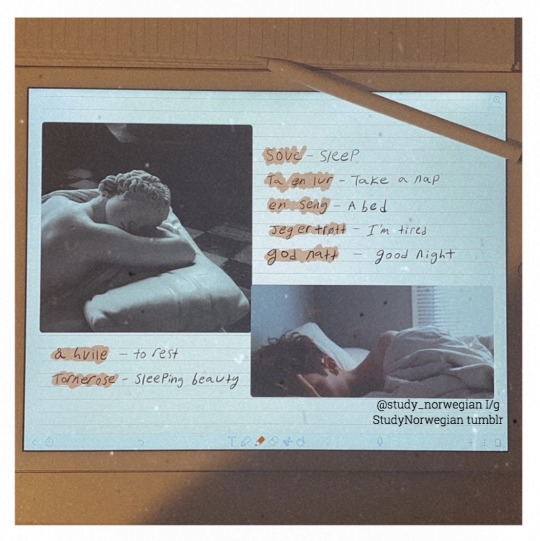
Jeg er trøtt 😴
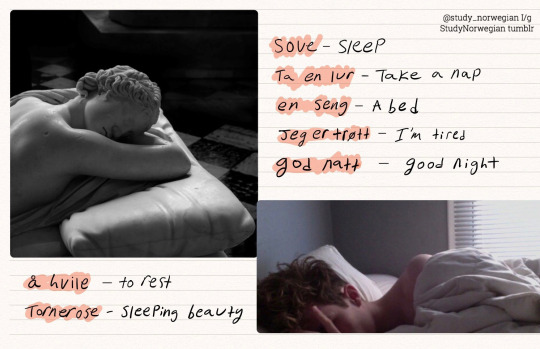
#norwegian#norsk#norway#langblr#langblur#language#languages#language learning#bilingual#polyglot#study#studyblr#aesthetic#dark academia#french#vocabulary
85 notes
·
View notes